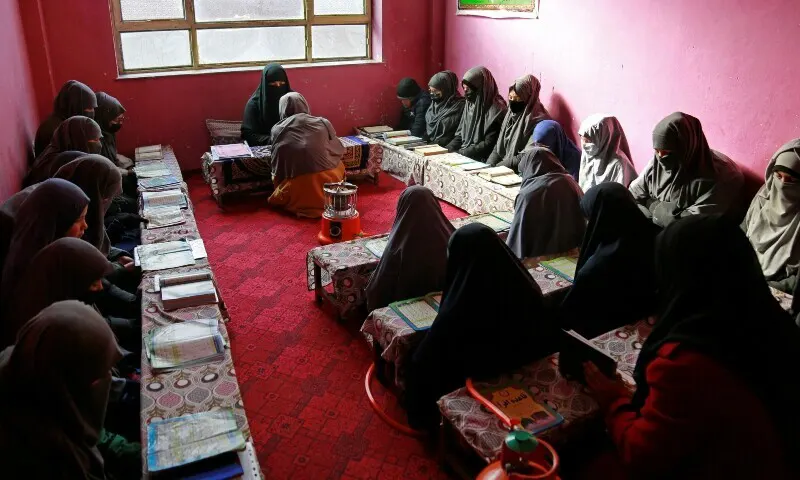The number of Islamic schools has grown across Afghanistan since the Taliban returned to power in August 2021, with teenage girls increasingly attend-ing classes after they were banned from secondary schools.
“We were depressed because we were denied an education,” said 16-year-old Farah, a veil covering her face and hair.
“It’s then that my family decided I should at least come here. The only open place for us now is a madrassa.”
Instead of maths and literature, the girls focus on rote-learning the Quran in Arabic — a language most of them don’t understand.
Those who want to learn the meaning of the verses study separately, where a teacher translates and explains the text in their local language.
AFP visited three madrassas in Kabul and in the southern city of Kandahar, where scholars said the number of girl students has doubled since last year.
For Farah, her ambition of becoming a lawyer was dashed when Taliban authorities blocked girls from secondary school — and months later banned women from attending university.
Still, Farah — whose real name has been changed to protect her identity like other students AFP inter-viewed for this story — counts herself lucky in that her parents allowed her to attend classes at all. The Taliban government adheres to an austere interpretation of Islam.
Rulings are passed down by the reclusive supreme leader Hibatullah Akhundzada and his inner circle of religious advisers, who are against education for girls and women, some officials say.
Akhundzada has ordered hundreds of new madrassas to be built as he establishes his Islamic Emirate based on sharia.
Authorities in Kabul have given several excuses for the closure of girls’ schools — including the need for segregated classrooms and Islamic uniforms, which were largely already in place.
The government insists schools will eventually re-open. Education is the main sticking point behind a dead-lock with the international community, which has condemned the stripping away of freedoms for women and girls.—AFP










